How to repel ticks in your yard – 5 expert ways to prevent them from coming in
Ticks can be a real problem, particularly in the warmer months – we turned to pest control experts for the best ways to keep them at bay
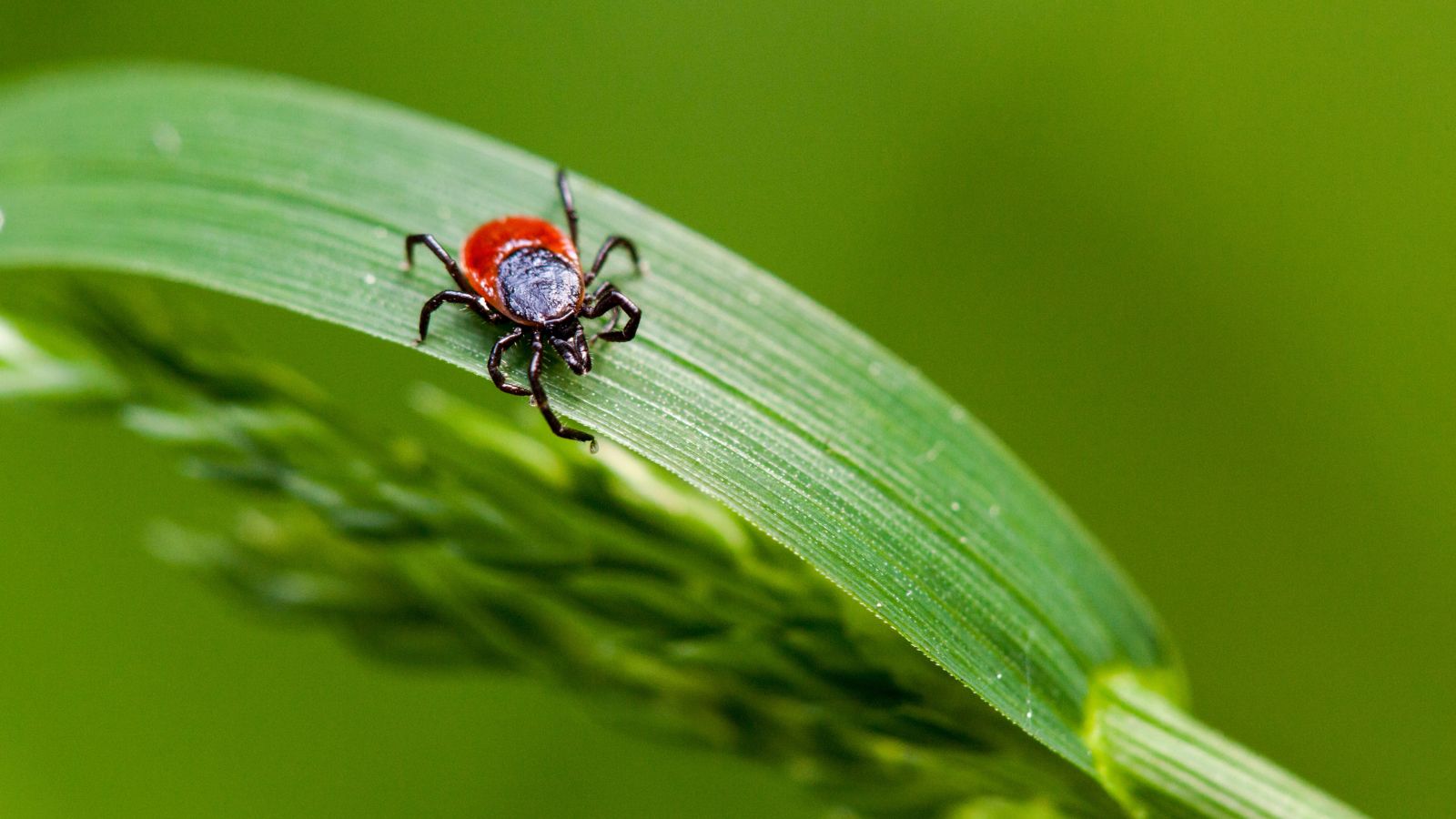

It's always a good idea to learn how to repel ticks in your yard, primarily so that you can protect yourself and pets from nasty bites. Some measures require very little work, such as planting tick-repellent plants, and can make a big difference. Ticks can be prolific in mild climates with high levels of humidity, and pose a problem both in the US and the UK.
There are various ways to kill ticks in your yard, and while they can pose a health risk, we shouldn't forget that they also play their role in the eco-system. Ticks provide food for other animals and give scientists a good indication of how the local environment is doing (for example, lots of ticks mean there are likely to be lots of other smaller mammals, such as rabbits and squirrels).
We all try to strike a balance between letting nature do its thing and repelling pests that prove a nuisance. If you want to stop ticks in their tracks, you have a few options, from natural and store-bought repellent sprays to clever landscaping tricks.
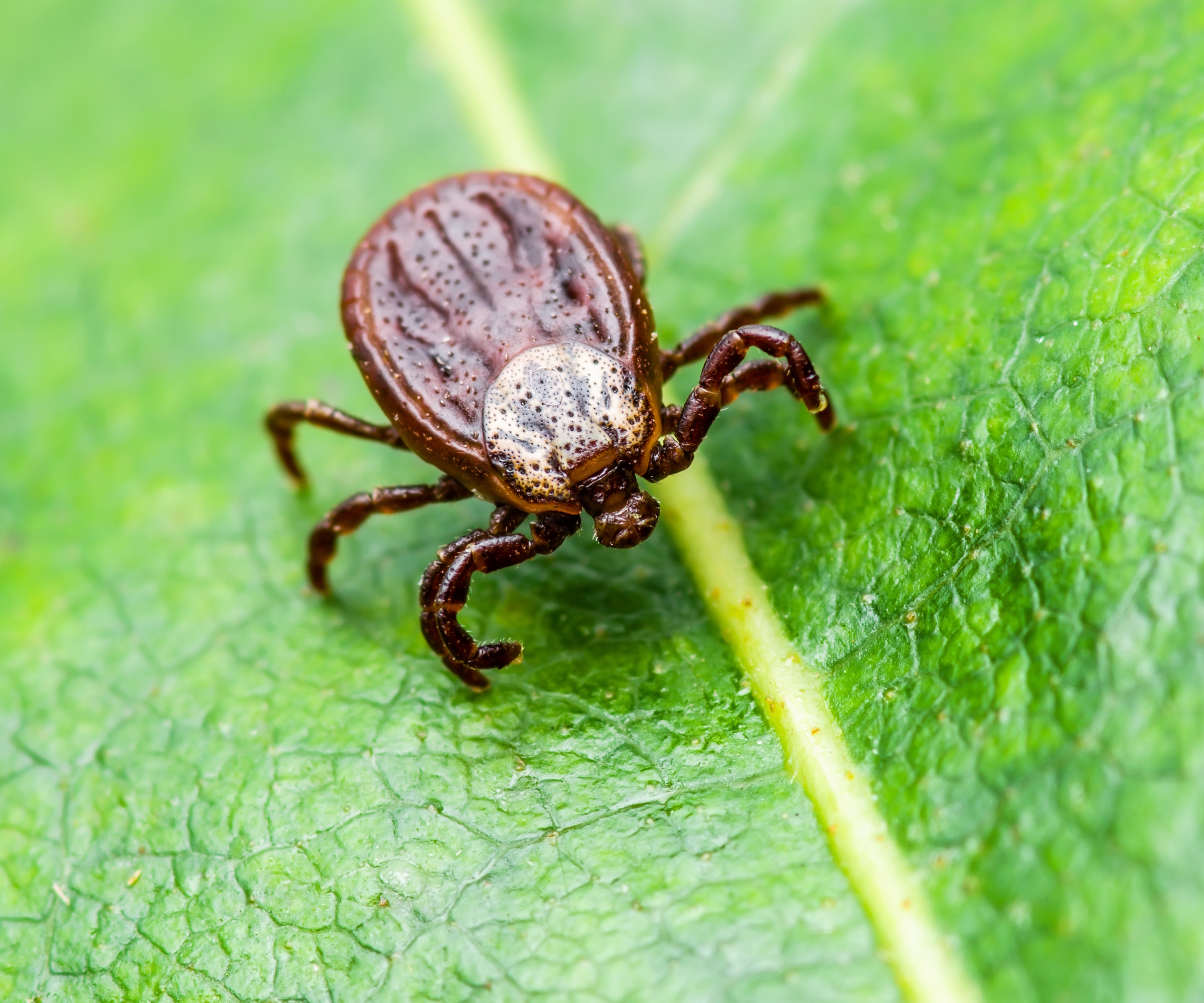
How to repel ticks in your yard
Pest control experts have shared their tried-and-true techniques below to help you keep ticks at bay, allowing you to enjoy your outdoor spaces to the full.
What are ticks?

Ticks are invertebrates that belong to the class Arachnida, the same class as spiders, scorpions, and mites. These small insects are most active during the warmer months of the year, and feed on the blood of mammals, birds, and sometimes reptiles and amphibians.
'Once these opportunistic hunters find a host, they dig their heads into their skin and they suck blood from them,' says Matt Smith, the co-owner of Green Pest Management. 'Ticks carry Lyme disease, which is really nasty and can affect your health for the rest of your life.'
There are lots of pests that can destroy plants, but ticks will just use plants to perch on and wait for a host to come by before attaching themselves to them. Here are five things you can do to repel them.

Matt Smith has been working in the pest control industry since 2009. He is a co-owner of Green Pest Management which was started in 2014 in New Castle, Delaware. With his background and experience, he is knowledgeable about a variety of pests, pest activity, and ways of dealing with pests infesting homes.
1. Plant tick-repelling plants around pathways

One of the main reasons why there are ticks in your yard is because they've been carried in on another animal. That's why ticks like to hang out on the border of landscapes, where people and other animals will walk through.
If you have pathways or transition areas in your yard, pest control professional Matt Smith suggests doing some 'strategic planting' with tick repellent plants to prevent ticks from hitching a ride into your yard.
Ticks will avoid plants and herbs such as rosemary, lavender, peppermint, and marigolds, so consider adding these beautifully fragrant pest-repellent plants to paths or around the edge of your plot to ward them off.
For expert tips on growing rosemary and growing lavender, you can head to our guides. Often used for companion planting, marigolds keep bugs away and bring a warm, vibrant color to your yard.
2. Keep grass short

If you want to prevent ticks, it's also important to keep your yard well-maintained. 'Regular mowing, trimming shrubs, and removing leaf litter are crucial,' says landscaping expert Scott McLeod. Ticks like humid areas with tall grass and weeds, so keeping on top of yard maintenance and lawn care will leave ticks with fewer places to go.
Ensure fallen leaves are actually removed or collected rather than just raking them to the edges of your yard, as ticks like to find a home among fallen leaves. Decluttering your yard and storing firewood somewhere dry will also go a long way in reducing their potential hiding places.

Scott McLeod is the owner of McLeod Landscaping Inc., a provider of commercial and residential landscaping, hardscaping, and snow removal services in Tewksbury, MA, and the surrounding areas. With over three decades of experience, Scott has grown McLeod Landscaping into a trusted partner for landscaping design, construction, renovation, enhancement, and maintenance.
3. Create physical barriers

Similar to how you might use a circle of crushed eggshells to get rid of slugs that are chewing their way through your hostas, you can make a larger physical barrier to ward off ticks.
'Creating a 3-foot-wide barrier of wood chips, gravel, or similar material between your lawn and any wooded areas can help deter ticks from entering your yard,' says Scott McLeod. These hot and dry surfaces will stop ticks in their tracks. You can also use dry mulch to create a barrier.
4. Try tick-repellent sprays

You can also deter them with scented sprays. Entomologist David Price from Mosquito Joe advocates using natural tick repellent sprays with cedar, eucalyptus, or neem oil. These substances effectively repel ticks and can be applied both to the skin or sprayed around the yard.
A homemade bug spray is definitely handy to have around during the warmer months, and you can make them quite cheaply using things you have at home.

David Price is the Entomologist and Technical Director at Mosquito Joe. David is responsible for developing technical expertise, researching and introducing new product lines and services, training current and new service personnel, and ensuring quality service in field operation practices throughout the Mosquito Joe system.
5. Use store-bought solutions
If the issue persists, you may need to use stronger, store-bought solutions. Of course, we would always recommend trying natural, eco-friendly methods first, and saving pesticides as a very last resort.
David Price recommends using diatomaceous earth, which is also used for getting rid of ground wasps and getting rid of ants on lawns. This powdered substance dehydrates ticks upon contact, killing them within hours.
When it comes to shop-bought options, David says DEET-based repellents and those that contain permethrin will be the most effective against ticks.
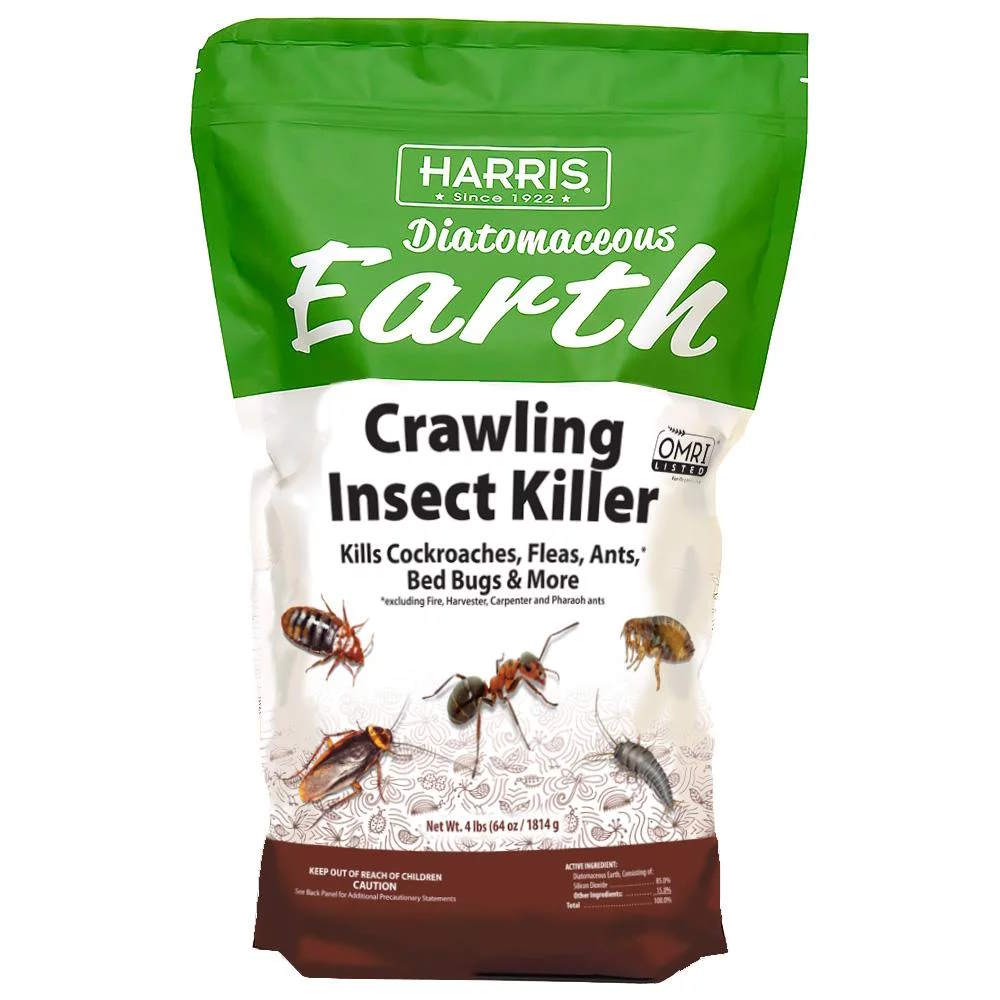
Harris Diatomaceous Earth Crawling Insect Killer uses diatomaceous earth to kill roaches, fleas, ants, bed bugs, and more. Insects that come in contact or ingest this powder die within 48 hours.
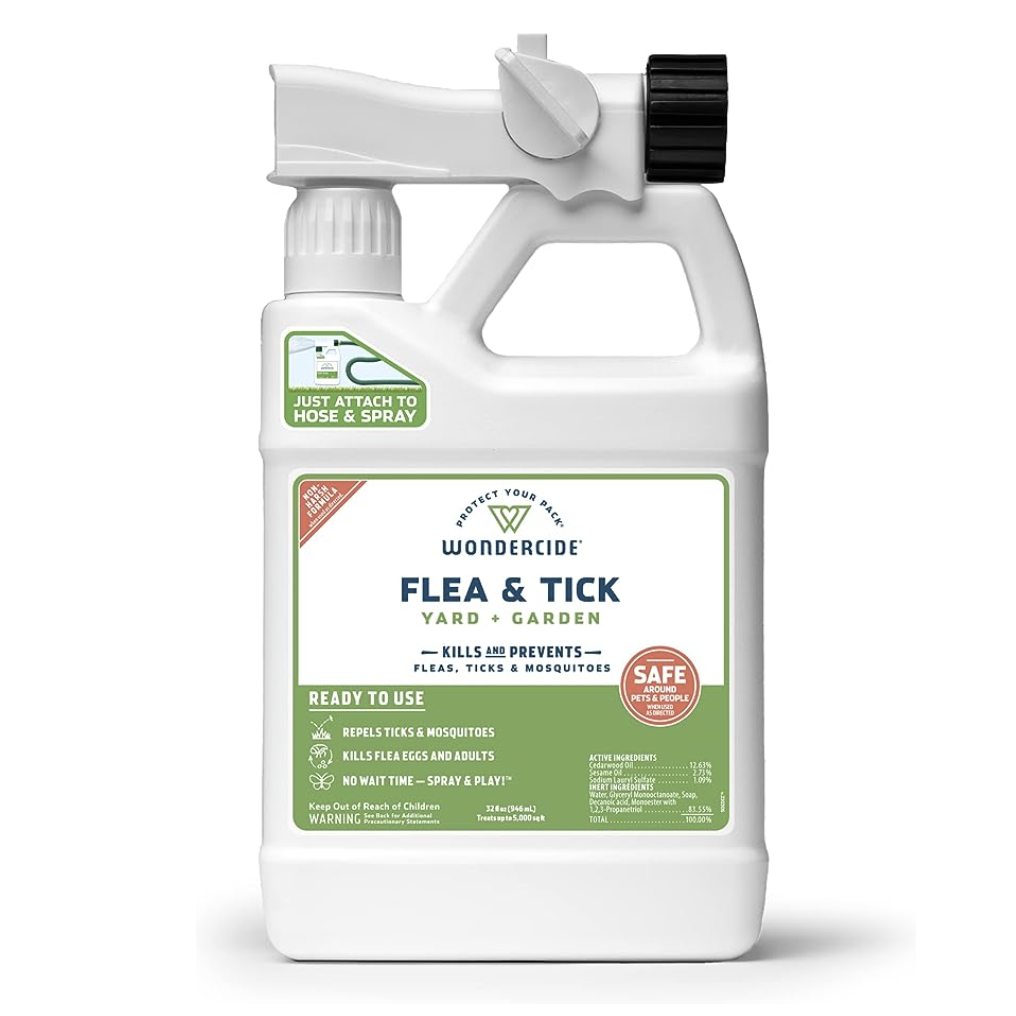
This targeted pesticide is safe for most garden plants, and is safe for use around people and pets, making it a great preventative spray for the most troublesome of outdoor pests including ticks and fleas.
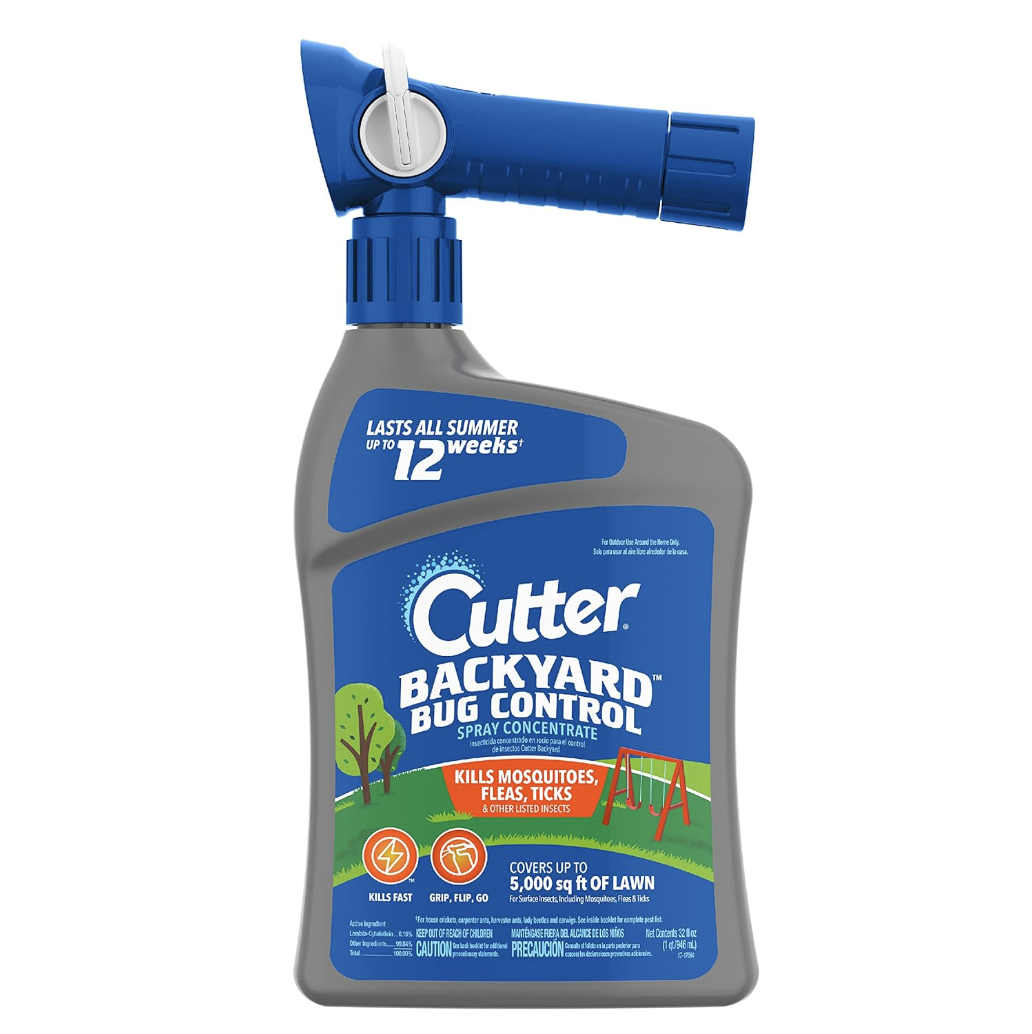
This bug spray is effective on ticks, fleas and mosquitoes and is praised for being easy to use, spraying a large area in one go. In the reviews, customers say it is really effective and helpful, especially for those allergic to mosquitoes and needing something more powerful.
FAQs
What time of the day are ticks the most active?
Some experts say that ticks are the most active in the morning and the evening, but they can turn up at any time of the day. It also depends on the species of tick, for example, there are two main types, 'hard' ticks and 'soft' ticks. Adult ticks are more active in the morning, and if the temperature reaches about 50 degrees, any ticks present are likely to be active.
The best course of action is to try a couple of preventative measures, and schedule in professional tick control services, too. Ticks can be a year-round problem, particularly if you live in an area with high temperatures and humidity, so it's sensible to keep vigilant.
Don't forget that deer often carry ticks, too, so by keeping deer away from plants, you'll also be preventing ticks from making their way in.
Sign up to the Homes & Gardens newsletter
Design expertise in your inbox – from inspiring decorating ideas and beautiful celebrity homes to practical gardening advice and shopping round-ups.

Millie Hurst is a freelance lifestyle writer with over six years of experience in digital journalism. Having previously worked as Solved Section Editor at Homes & Gardens and Senior SEO Editor at News UK in London and New York, Millie has written for an array of homes brands including Livingetc and Real Homes and was formerly Senior Content Editor at Ideal Home. She has written and edited countless features on home organization, decluttering and interior design and always hopes to inspire readers with new ways to enjoy their homes. She loves to weave nature-inspired decor and nods to time spent in Italy into her own home.
-
 Nate Berkus says slipcovered sofas are back on trend – and I just found a way to create this designer-approved laid-back look from just $86
Nate Berkus says slipcovered sofas are back on trend – and I just found a way to create this designer-approved laid-back look from just $86This classic style is making a strong comeback, but did you know you don't have to buy a whole new couch to get this Nate-approved look?
By Eleanor Richardson
-
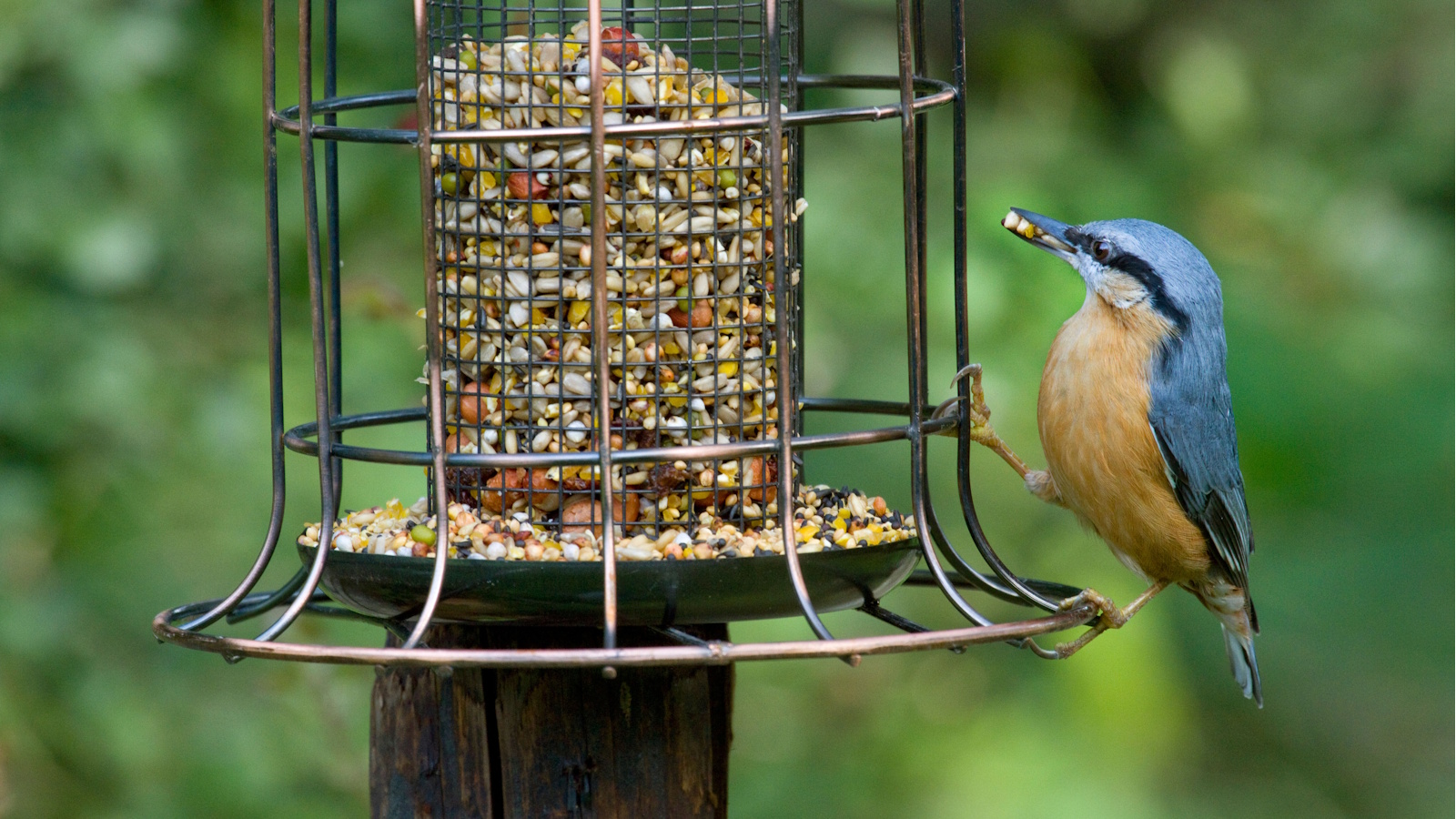 Gardeners are putting pasta in bird feeders this spring – but there is one important warning you need to know before following suit
Gardeners are putting pasta in bird feeders this spring – but there is one important warning you need to know before following suitCooked pasta can be a nutritious snack for birds, but serving it in the wrong way could cause them harm
By Tenielle Jordison